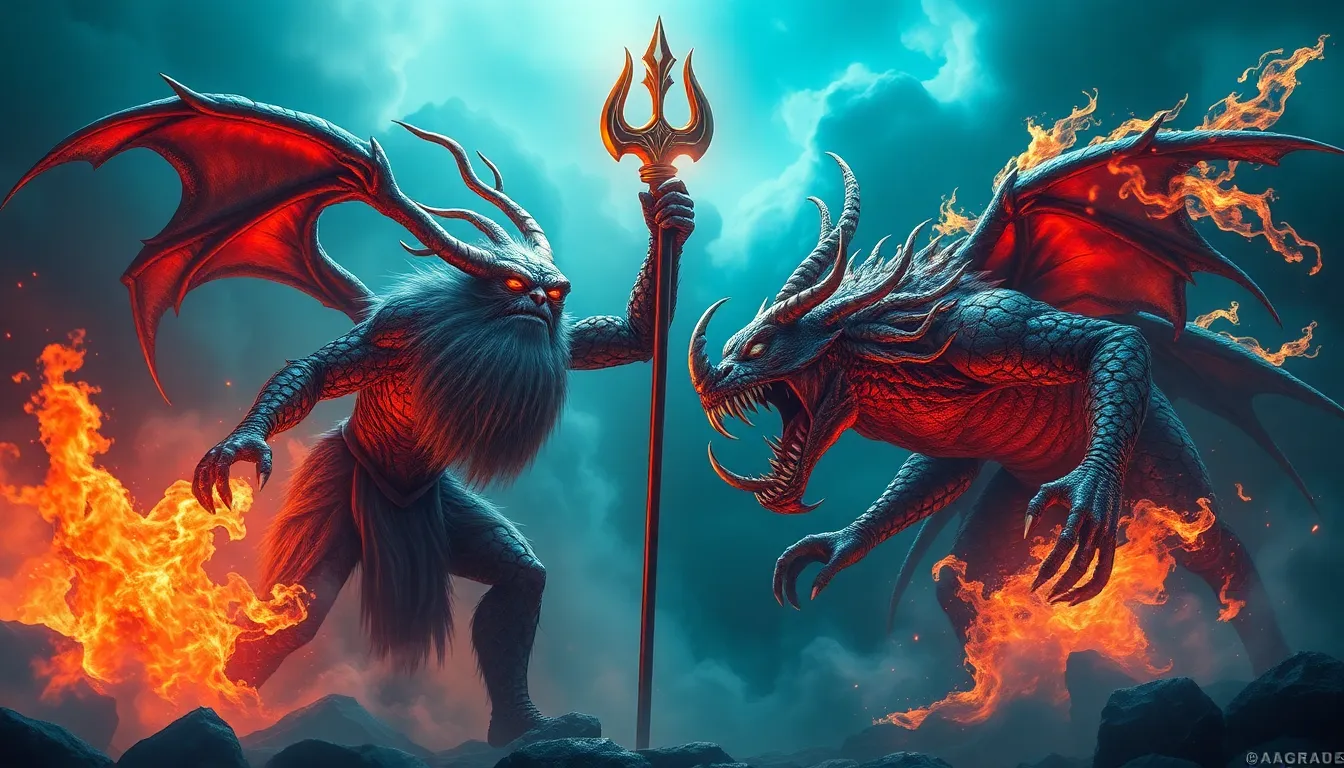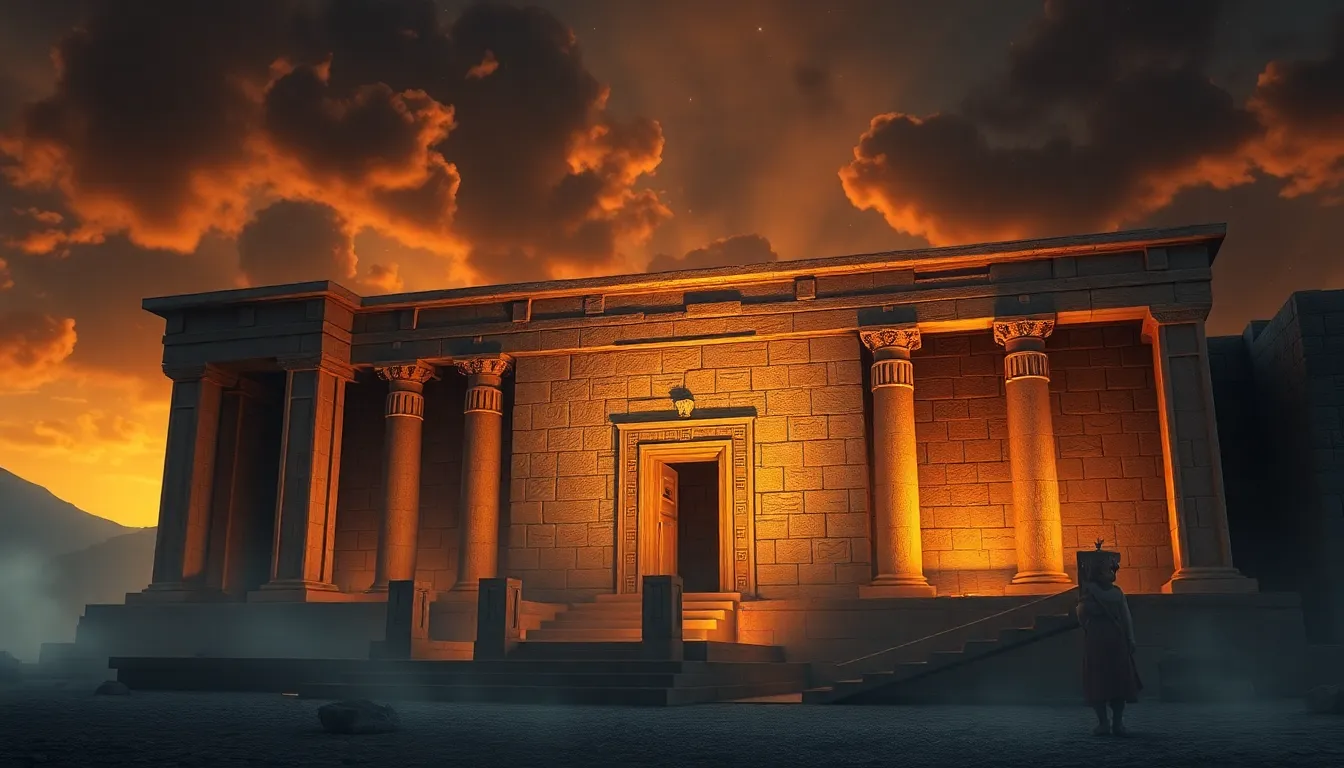The Ultimate Showdown: Gods and Monsters in Mythology
Introduction to Mythological Conflicts
Mythologies from around the world are filled with tales of gods and monsters, each representing significant aspects of the cultures that created them. These beings often symbolize natural forces, human fears, and moral dilemmas, acting as reflections of the societies that tell their stories. The conflicts between gods and monsters serve not only as thrilling narratives but also as allegories for the struggles humanity faces against chaos and the unknown.
Historical Context of Mythological Battles
The origins of mythological conflicts can be traced back to ancient civilizations, where belief systems revolved around deities who controlled various aspects of life and nature. These cultures created rich tapestries of stories that were passed down through oral traditions before being recorded in written form. The preservation of these myths through generations has allowed us to glimpse the values, fears, and aspirations of our ancestors.
The Pantheon: Key Gods Across Cultures
Throughout history, various cultures have worshipped a pantheon of gods, each with distinct characteristics and powers. Here are some of the major gods from different mythologies:
- Greek Mythology: Zeus, the king of the gods, wielded thunder and lightning, embodying authority and order.
- Norse Mythology: Odin, the all-father, represented wisdom and war, while Thor, his son, was the god of thunder and protection.
- Egyptian Mythology: Ra, the sun god, symbolized creation and life, while Osiris represented the afterlife and resurrection.
- Hindu Mythology: Vishnu, the preserver, and Shiva, the destroyer, embody the duality of creation and destruction in the universe.
Monsters of Myth: The Creatures that Challenge the Divine
In contrast to the gods, monsters in mythology often symbolize chaos, danger, and the unknown. These beings challenge divine authority and reflect the fears of the societies that birthed them. Notable monsters include:
- Medusa: A Gorgon whose gaze could turn men to stone, representing the fear of the monstrous feminine.
- Fenrir: A giant wolf from Norse mythology destined to devour Odin during Ragnarok, symbolizing uncontrollable fate.
- Typhon: A monstrous giant in Greek mythology, representing storms and chaos, who challenged Zeus.
- The Kraken: A legendary sea monster that embodies the terror of the unknown depths of the ocean.
Iconic Showdowns: Legendary Battles between Gods and Monsters
The narratives of gods battling monsters are among the most captivating in mythology. These confrontations often carry deep meanings and implications for their respective cultures. Some iconic showdowns include:
- Zeus vs. Typhon: After Typhon challenged Zeus’ authority, a fierce battle ensued, culminating in Zeus imprisoning Typhon beneath Mount Etna. This victory reinforced Zeus’ position as the ruler of the gods.
- Thor vs. Jörmungandr: The World Serpent, Jörmungandr, was destined to fight Thor during Ragnarok, symbolizing the inevitable clash between order and chaos.
Themes of Good vs. Evil in Mythological Conflicts
The battles between gods and monsters often reflect broader themes of good versus evil. These conflicts highlight moral and ethical dilemmas, illustrating the complexities of human nature. The duality of gods, who can act as both protectors and destroyers, further complicates these narratives, making them rich with philosophical implications.
Cultural Interpretations and Variations
Different cultures depict gods and monsters in unique ways, influenced by their geography and environment. For instance:
- In coastal societies, sea monsters are prevalent, symbolizing the dangers of the ocean.
- In desert cultures, gods may embody elements like the sun and storms, reflecting their harsh environments.
These variations demonstrate how mythology adapts to the needs and fears of different societies, offering a lens through which to view their world.
Modern Adaptations and Influence of Mythology
The stories of gods and monsters have transcended time, influencing modern literature, film, and pop culture. Examples of contemporary retellings include:
- Percy Jackson series: A modern reinterpretation of Greek mythology, where young demigods battle ancient monsters.
- God of War: A video game series that explores Norse and Greek mythologies, featuring epic battles between gods and monsters.
These adaptations keep mythological stories alive, allowing new generations to engage with these ancient tales.
The Psychological and Sociological Aspects of Mythological Conflicts
The struggles between gods and monsters reveal much about human psychology and societal fears. These myths often serve as cautionary tales, reflecting the complexities of human existence and the challenges faced by societies. They help us understand ancient cultures’ values and fears, providing insights into their worldview.
Conclusion: The Enduring Legacy of Gods and Monsters
The stories of gods and monsters are timeless, resonating through the ages with their themes of conflict, morality, and human experience. As we explore these epic showdowns, we gain insights not only into ancient cultures but also into our own lives. The enduring legacy of these myths reminds us that the battles between order and chaos, good and evil, are as relevant today as they were in antiquity.



